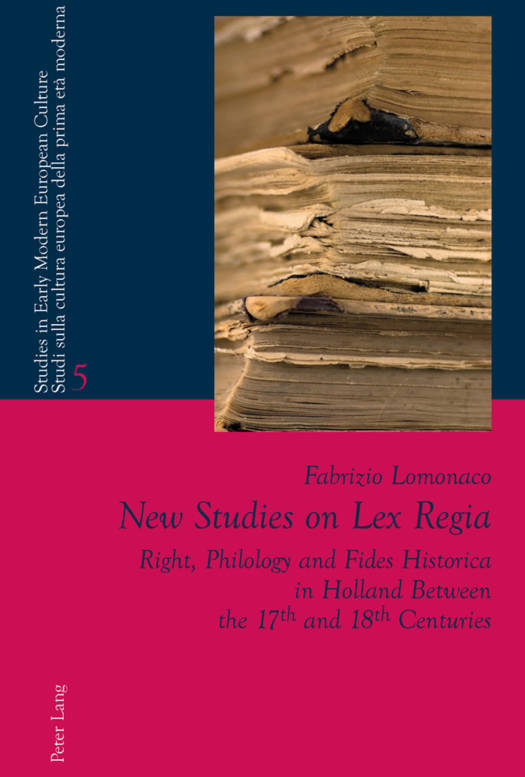
Door een staking bij bpost kan je online bestelling op dit moment iets langer onderweg zijn dan voorzien. Dringend iets nodig? Onze winkels ontvangen jou met open armen!
- Afhalen na 1 uur in een winkel met voorraad
- Gratis thuislevering in België vanaf € 30
- Ruim aanbod met 7 miljoen producten
Door een staking bij bpost kan je online bestelling op dit moment iets langer onderweg zijn dan voorzien. Dringend iets nodig? Onze winkels ontvangen jou met open armen!
- Afhalen na 1 uur in een winkel met voorraad
- Gratis thuislevering in België vanaf € 30
- Ruim aanbod met 7 miljoen producten
Zoeken
New Studies on Lex Regia
Right, Philology and Fides Historica in Holland Between the 17 Th and 18 Th Centuries
Fabrizio LoMonaco
€ 114,45
+ 228 punten
Omschrijving
What significance did the Lex Regia De Imperio Vespasiani bear for the Dutch philosophers in the seventeenth and eighteenth centuries? Did it simply define a question of law and its ancient use? Was it responsible for the definition of a scholarly exercise in literary-rhetorical regulae? New Studies on Lex Regia explores these questions as the dispute on a non-literary source (the Lex Regia) is exemplary for the way in which philological research came together with interpretations of the Roman law and the political conclusions drawn from them.
Situated between philosophy and philology, this book attempts to rehabilitate a debate on the fides historica in Cartesianism and post-Cartesian Pyrrhonism. It focuses on the role that modern historiography on Rome plays in the construction of the politico-cultural model between republicanism and absolutism in the works of the Dutch thinkers Gronovius, Ulrik Huber, Perizonius, Noodt and Barbeyrac.
Situated between philosophy and philology, this book attempts to rehabilitate a debate on the fides historica in Cartesianism and post-Cartesian Pyrrhonism. It focuses on the role that modern historiography on Rome plays in the construction of the politico-cultural model between republicanism and absolutism in the works of the Dutch thinkers Gronovius, Ulrik Huber, Perizonius, Noodt and Barbeyrac.
Specificaties
Betrokkenen
- Auteur(s):
- Uitgeverij:
Inhoud
- Aantal bladzijden:
- 351
- Taal:
- Engels
- Reeks:
- Reeksnummer:
- nr. 5
Eigenschappen
- Productcode (EAN):
- 9783034305433
- Verschijningsdatum:
- 27/04/2011
- Uitvoering:
- Paperback
- Formaat:
- Trade paperback (VS)
- Afmetingen:
- 150 mm x 220 mm
- Gewicht:
- 501 g

Alleen bij Standaard Boekhandel
+ 228 punten op je klantenkaart van Standaard Boekhandel
Beoordelingen
We publiceren alleen reviews die voldoen aan de voorwaarden voor reviews. Bekijk onze voorwaarden voor reviews.











